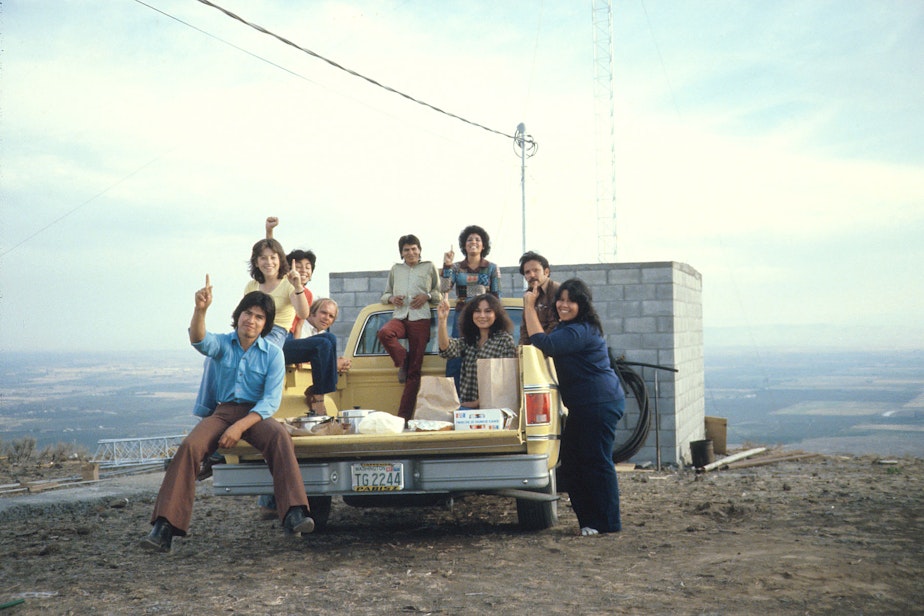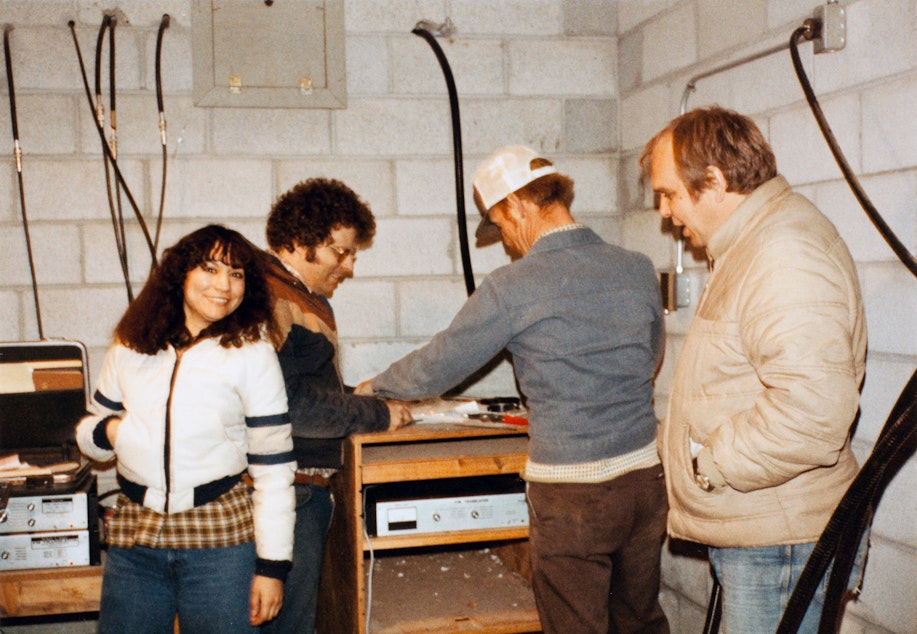Voice of the farmworker: How Spanish-language radio cultivated community in Yakima Valley

In the public radio world, we talk a lot about our mission to engage and serve all communities. But historically, we haven’t done a great job of that.
Since NPR's start in 1971, most of our programming has been English-language.
That coverage gap hasn't gone unnoticed.
In 1976, in an abandoned fire station on First Hill in Seattle, a group of Chicano and Chicana organizers came together to create a Spanish-language community radio station called Radio Cadena, which translates to "chain" or "link" in English.
Back in the 1970s or 1980s, if you were looking for a Spanish-language broadcast to give you the latest information about Chicano activism — or the farmworker labor movement — you'd tune into Radio Cadena.
The station became appointment radio for Spanish-language news, music, and community events. The station became known for its open-door policy, and for hiring employees without a formal background in radio.
Monica De La Torre chronicled the rise of Radio Cadena in her new book, "Feminista Frequencies: Community Building through Radio in the Yakima Valley."
Soundside host Libby Denkman talked to De La Torre about the groundbreaking Spanish-language programming Radio Cadena produced, and the women behind the station.
Sponsored
And if you want to talk a listen to Radio KDNA, but you're not in the Yakima Valley, you can stream the station online at kdna.org.








